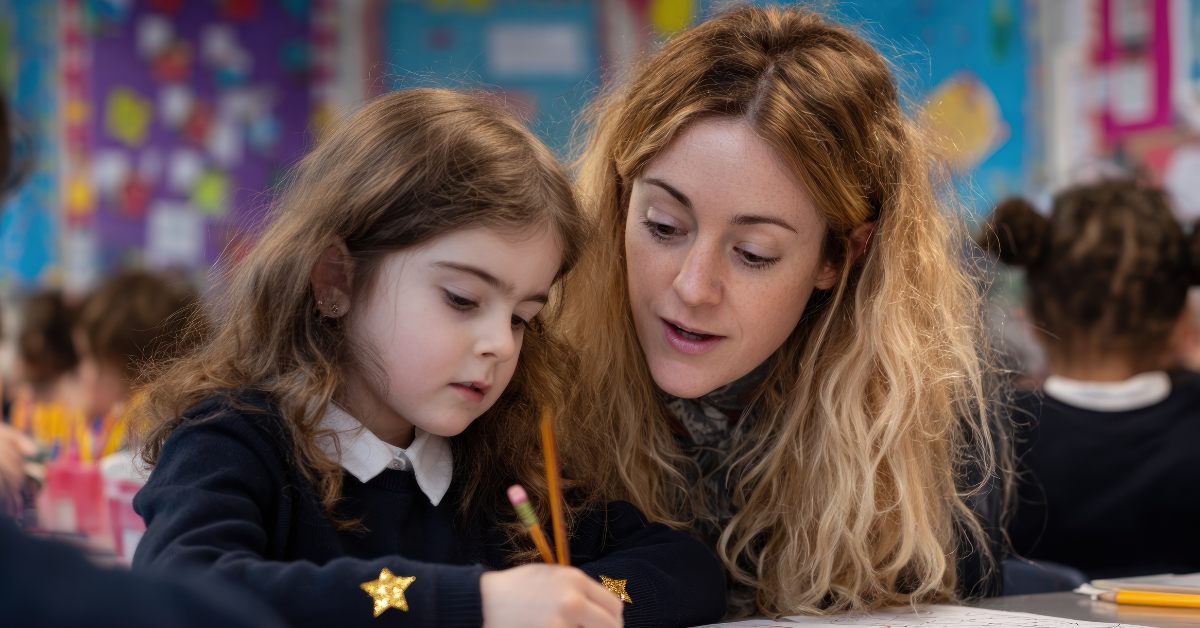The impact of auditory memory on language development
Almost everything we do involves speech, language and communication. Everyday activities like learning, sorting out problems, having a conversation, getting a job, making friends and having fun all rely on our ability to communicate. No wonder then that some pupils find language development a really tricky process. There are a lot of different elements involved that allow our language and communication to work effectively.
Ok, so let’s think of language development as a tree... Before the trunk, the branches and the leaves grow, the roots need to ground themselves deep in the earth creating strong foundations. The roots in language development, are cognitive skills: attention, listening and memory.
These vital skills help children to understand, process and use language, so they are all important. But, for today, let’s focus on memory and more specifically auditory memory.
What is auditory memory?
Auditory memory helps us absorb sound (in particular verbal language). Without auditory memory, we wouldn’t be able to process, remember or recall information (Bellis, 2003). So, you can see how crucial it is for language!
Children learn language by listening to others, they store sounds and words in their brain and once they’ve heard the sounds plenty, they will produce them. Not going to lie, I’ve simplified things here for you and it is a very complex process but without auditory memory, the language development would be virtually impossible!
Just like many other skills, auditory memory develops as children grow, however, some children might find it more difficult than others.
What will I learn about auditory memory from this blog?
Auditory memory can seem like a vast and, confusing subject so the aim of this blog is to tell you a little more about auditory memory. And, in true Mable fashion, we will also give you some practical advice and strategies for in the classroom and at home to help children flourish, even more.
Auditory memory and processing difficulties affect 5-10% of school age children (Mourad et al., 2015).Why is it so Important?Why is it so Important
Why is it so important?
If a child struggles with auditory memory, they can find it difficult to follow instructions and pay attention. Auditory memory also plays a crucial role in literacy. In a previous blog, we spoke about phonological awareness: children who have poor auditory memory skills can struggle to recognise sounds and match them to letters (Rowe et al., 2003).
So as you can understand, it can affect their learning. Let’s think about the child’s emotions and wellbeing for a minute; as children become aware of their difficulties, they may feel frustrated and it may affect their confidence (Tan, 1999). However, the strategies and the advice provided below should reduce the impact on the child so let’s continue!
Identifying auditory memory difficulties
At a young age, it can be difficult to identify children with auditory memory difficulties. As they age, a child’s difficulties may become more apparent. Identifying children facilitates early intervention, this minimises the effect on their wellbeing and development. The list below can help identify children who struggle, children may:
- Be unable to follow complex instructions
- Find it hard to sustain attention for a long period of time
- Appear ‘in their own little world’
- Seem shy
- Find it hard to telling you about their day or telling you a story
- Not be progressing in school
- Be frustrated
Classroom strategies to support auditory memory
Simple adaptations to the class environment can really help a child progress!
- Seat children close to the teacher
- Minimise background noise
- Gain a child’s attention before speaking to use e.g. use their name
- Check a child has understood
- Keep instructions short
- Give children visual information e.g. key vocabulary list or pictures
- Slow your speech down and use pauses to give children processing time
- Encourage children to tell you when they don’t understand
Auditory memory games for home
Research shows that a child who receives help from SLT, school and home is more likely to progress. Here are some great games that will help auditory memory and, hopefully, will be great fun for all the family!
- Treasure Hunt – Hide items around the home. Give children instructions e.g. ‘walk to the kitchen, turn to the left, check under the bowl’. You can start with short, simple instructions and make the instructions harder as you go. This will help develop a child’s ability to follow instructions, which will definitely help in class. Plus, they get to pretend to be a pirate, who wouldn’t love that?!
- Shopping Lists – Children love playing shops! When playing, ask your child for a list of items. You could start with two e.g. ‘can I have a banana and an apple?’ Again, as your child progresses make the lists longer e.g. ‘can I have a banana, an apple, a tin of beans, chocolate and bread’. This helps children to listen to and recall instructions as they gather the items.
- Sentence Strings – This is a really great game as it can be played anywhere… in the car, in the bath, when shopping, in waiting rooms… literally anywhere! Start a sentence such as ‘I went to the zoo and I saw…’ and then you and your child list items. This helps auditory memory and vocabulary development, so it is a really great and useful game!
How can Speech and Language Therapy support auditory memory?
A speech and language therapist can help assess a child’s auditory memory. Assessment can help identify a child’s level of need and then speak with teachers and parents to ensure the right help is being given to the child. Practice is key for auditory memory, SLT’s may spend time teaching children strategies for listening and processing either in group setting or 1:1.
If you have any concerns regarding a child’s auditory memory, you can always get in touch with a Mable speech and language therapist – we would be happy to help!
- General Speech & Language (24)
- Speech and Language Therapy (21)
- Social Communication (11)
- Speech Sounds (7)
- Autism Support (4)
- Language Delay/Disorder (3)
- SEMH (3)
- Safeguarding (3)
- AAC (2)
- Autism (2)
- Relationship Issues (2)
- ADHD Support (1)
- Absenteeism (1)
- Classroom Behaviour (1)
- Cleft Lip/Palate (1)
- Counselling (1)
- Funding (1)
- General mental health (1)
- Generalised anxiety (1)
- MATs (1)
- OCD (1)
- Phobias (1)
- Primary Schools (1)
- SENCOs (1)
- School Issues (1)
- Secondary & Sixth Form Schools (1)
- Stammering (1)
- Trauma (1)
You may also like
These related stories

The connection between language and mental health difficulties

Meeting Vital Requirements: How to Ensure Your SALT Provision Supports Every Learner
.png)